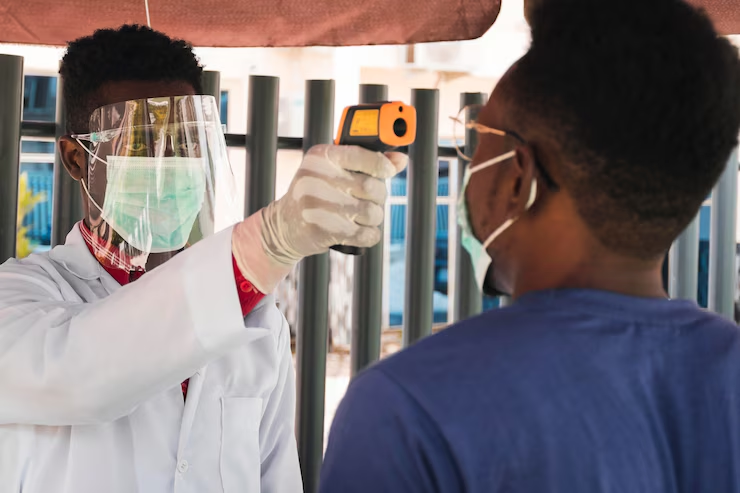Job Description:
Option 1 (Focus on Role and Organization):
Cape Town Department of Counselling & Testing “The Peer Educator program , plays a crucial role in community outreach and health education. These trained individuals act as liaisons between the department and the local population, providing information, support, and resources related to counselling and testing services available in Cape Town. They contribute to a more accessible and understanding environment for individuals seeking these services.”
Option 2 (Focus on Services Offered):
Cape Town Department of Counselling & Testing utilizes a Peer Educator program to enhance its reach and effectiveness. These Peer Educators are trained to offer guidance and support on a variety of topics related to counselling and testing. This includes information about HIV/AIDS, mental health resources, substance abuse prevention, and other critical health concerns. Their role is to empower individuals to make informed decisions about their well-being and access the necessary services provided by the department.”
Option 3 (Focus on the Importance of Peer Education):
“Recognizing the importance of relatable and accessible education, the Cape Town Department of Counselling & Testing has implemented a Peer Educator program. Peer Educators, drawn from the community itself, are trained to provide information and support on counselling and testing services. This peer-to-peer approach fosters trust and encourages open communication, addressing common barriers to accessing healthcare and promoting a culture of proactive health management within Cape Town.”
Option 4 (More Detailed – Combines aspects of the others):
“The Cape Town Department of Counselling & Testing recognizes the power of peer-to-peer communication and has established a comprehensive Peer Educator program to expand its reach and impact within the community. These Peer Educators, carefully selected and rigorously trained, serve as vital links between the department’s services and the residents of Cape Town. They provide accurate information about counselling and testing options for a range of health issues, including HIV/AIDS, sexually transmitted infections, mental health concerns, and substance abuse.
By offering support, encouragement, and a safe space to ask questions, Peer Educators help to reduce stigma, promote early detection, and empower individuals to take control of their health and well-being. They are instrumental in building trust and creating a more accessible and understanding environment for those seeking help from the Cape Town Department of Counselling & Testing.”
When deciding which option to use, consider:
- Your Audience: Who will be reading this elaborated passage?
- Your Purpose: What message are you trying to convey? What do you want the reader to take away?
- Context: Where will this passage be used? (e.g., website, brochure, report)
Advantages:
The integration of peer educators within the Cape Town Department’s Counselling & Testing services offers a multitude of advantages, significantly enhancing the reach, effectiveness, and accessibility of these vital programs. Peer educators, individuals from similar backgrounds and age groups as the target population, can bridge cultural and linguistic gaps that might hinder engagement with traditional healthcare providers. This shared understanding fosters trust and rapport, encouraging individuals to seek counselling and testing services who might otherwise be hesitant.
One key advantage is increased accessibility. Peer educators can operate in community settings, such as schools, youth centers, and places of worship, bringing services closer to the people who need them. This decentralized approach overcomes geographical barriers and reduces the stigma often associated with visiting dedicated healthcare facilities. Furthermore, peer educators are often more approachable than formal healthcare professionals, making it easier for individuals to ask questions and voice concerns about sensitive topics like sexual health, substance abuse, and mental well-being.
Beyond accessibility, peer educators play a crucial role in promoting preventative health measures. They can conduct outreach programs, disseminate information on healthy behaviors, and raise awareness about the importance of regular testing for conditions like HIV and STIs. By using relatable language and culturally appropriate communication styles, peer educators can effectively educate their peers on risk reduction strategies and empower them to make informed decisions about their health.
The use of peer educators also contributes to the destigmatization of counselling and testing. By openly discussing these services and sharing their own experiences, peer educators can normalize help-seeking behavior and challenge negative perceptions. This can lead to a greater willingness among community members to seek support when needed, ultimately improving overall health outcomes.
Finally, the Peer Educator program provides valuable skills and opportunities for the educators themselves. They gain leadership experience, communication skills, and a deeper understanding of public health issues. This empowerment can lead to increased self-esteem, improved career prospects, and a greater sense of civic responsibility. In essence, the Cape Town Department’s use of peer educators in Counselling & Testing creates a win-win situation, benefiting both the individuals they serve and the educators themselves, contributing to a healthier and more informed community.
Requirements:
To be considered for this opportunity, applicants must meet a minimum educational requirement of Grade 10 completion. This means that individuals should have successfully finished the tenth year of secondary education, demonstrating a foundational understanding of core subjects typically covered at this level. Proof of Grade 10 completion, such as a transcript or certificate, may be required as part of the application process to verify eligibility. While meeting this minimum qualification ensures that applicants possess a basic level of knowledge, further education, training, or experience may be advantageous depending on the specific demands of the role or program.




